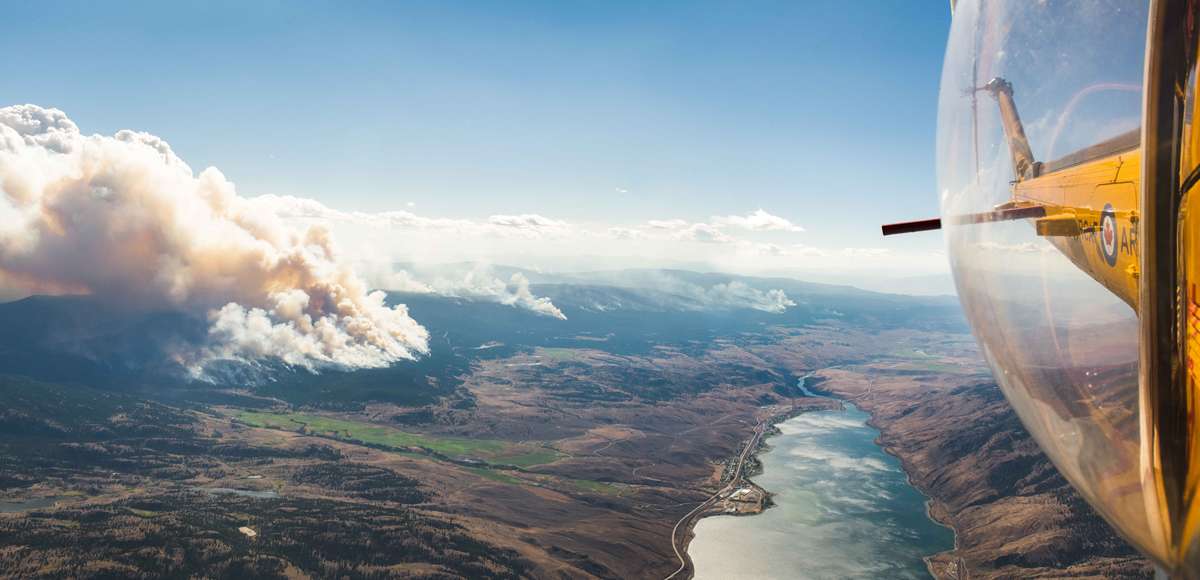Operation LENTUS, Military on the ground, in the air, in support of wildfire firefighting
By Lookout Production on Aug 30, 2021 with Comments 0

Panoramic aerial landscape taken on Aug. 11 of the Tremont Creek Wildfire in Kamloops, B.C. Photo by Lieutenant-Commander Tony Wright, MARPAC/JTFP
This summer, the wildfire situation in British Columbia escalated to extreme levels due to unseasonably dry conditions, lightning strikes, and weather patterns unusual for the season.
So far this fire season, more than 861,523 hectares have burned. To date, there is about 240 fires still burning.
Headed by Joint Task Force Pacific (JTFP), Canadian Army and Royal Canadian Air Force personnel and equipment are supporting the BC Wildfire Service in supressing the fires in British Columbia’s interior
Three Requests for Federal Assistance from the Province of British Columbia were made throughout July, which resulted in an Air Task Force of two CH-147 Chinook and two Ch-146 Griffon helicopters headquartered in Kamloops. A CC-130 Hercules tactical airlift fixed wing aircraft based out of 19 Wing Comox, also a part of the Air Task Force. Plus a Land Task Force of over 300 soldiers headquartered in Vernon.
One company of approximately100 soldiers is conducting type three firefighting, which is suppression of hot spots and fire line monitoring under the supervision of BC Wildfire Service at the Thomas Creek fire near Oliver. Another company of approximately 100 soldiers have the same task at the Flat Lake fire near 100 Mile House.
Land Task Force personnel drawn from across 3rd Canadian Division are comprised of Regular and Reserve Force soldiers from 1 Canadian Mechanized Brigade Group, and 38, 39, and 41 Canadian Brigade Groups.
Canadian Armed Forces assistance complements and enhances provincial and local resources with unique capabilities, including military personnel and equipment. The military’s primary objective is to help provincial and local authorities stabilize the situation and to reassure British Columbia residents in the affected areas.
The air task force based out of Kamloops has thus far provided air mobility to fire support crews, transporting mobile firefighting equipment, conducting reconnaissance flights to determine the scope and scale of wildfires, expediting fire support crews between their homes and wildfire areas in order to reduce travel during respite, and evacuating civilians out of areas where resources are limited or restricted due to wildfire activity.
The Requests for Assistance from the Province of British Columbia are set to expire at the end of August. Periodic reassessments of the situation will be conducted in order to continuously evaluate the needs of the province and whether additional federal support is required beyond the requested period of support. The Canadian Armed Forces are prepared to continue to support British Columbia should there be an extension.
Filed Under: Top Stories
About the Author:





